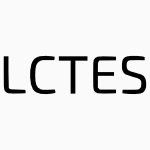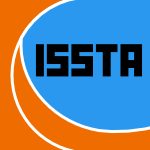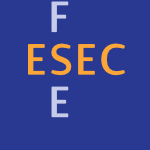75 papers:
 ESOP-2015-AbdullaAP #performance
ESOP-2015-AbdullaAP #performance- The Best of Both Worlds: Trading Efficiency and Optimality in Fence Insertion for TSO (PAA, MFA, NTP), pp. 308–332.
 CHI-2015-HuangSHH #analysis #how
CHI-2015-HuangSHH #analysis #how- How Activists Are Both Born and Made: An Analysis of Users on Change.org (SWH, M(S, BMH, GH), pp. 211–220.
 HIMI-IKC-2015-KatoHT
HIMI-IKC-2015-KatoHT- Innovation Compass: Integrated System to Support Creativity in Both Individuals and Groups (YK, TH, ST), pp. 476–487.
 ASPLOS-2015-DuanHT #memory management #optimisation #performance #symmetry
ASPLOS-2015-DuanHT #memory management #optimisation #performance #symmetry- Asymmetric Memory Fences: Optimizing Both Performance and Implementability (YD, NH, JT), pp. 531–543.
 DAC-2014-CuiCBC #optimisation #set
DAC-2014-CuiCBC #optimisation #set- A Swap-based Cache Set Index Scheme to Leverage both Superpage and Page Coloring Optimizations (ZC, LC, YB, MC), p. 6.
 DAC-2014-UbalSMGUCSK #design #performance #reliability
DAC-2014-UbalSMGUCSK #design #performance #reliability- Exploring the Heterogeneous Design Space for both Performance and Reliability (RU, DS, PM, XG, YU, ZC, GS, DRK), p. 6.
 DATE-2014-HeYH0 #design #named #power management
DATE-2014-HeYH0 #design #named #power management- SuperRange: Wide operational range power delivery design for both STV and NTV computing (XH, GY, YH, XL), pp. 1–6.
 CHI-2014-BiOZ #multi #optimisation
CHI-2014-BiOZ #multi #optimisation- Both complete and correct?: multi-objective optimization of touchscreen keyboard (XB, TO, SZ), pp. 2297–2306.
 HIMI-AS-2014-GotzeBPB #quote
HIMI-AS-2014-GotzeBPB #quote- “A Careful Driver is One Who Looks in Both Directions When He Passes a Red Light” — Increased Demands in Urban Traffic (MG, FB, IPS, KB), pp. 229–240.
 ICML-c2-2014-SeldinS #algorithm #probability
ICML-c2-2014-SeldinS #algorithm #probability- One Practical Algorithm for Both Stochastic and Adversarial Bandits (YS, AS), pp. 1287–1295.
 SAC-2014-RockiBS #abstraction #future of #performance #programming #question
SAC-2014-RockiBS #abstraction #future of #performance #programming #question- The future of accelerator programming: abstraction, performance or can we have both? (KR, MB, RS), pp. 886–895.
 ICDAR-2013-KhanKS #identification #problem #question #verification
ICDAR-2013-KhanKS #identification #problem #question #verification- Can Signature Biometrics Address Both Identification and Verification Problems? (SHK, ZK, FS), pp. 981–985.
 CSCW-2013-ReynoldsSBH
CSCW-2013-ReynoldsSBH- Butler lies from both sides: actions and perceptions of unavailability management in texting (LR, MES, JPB, JTH), pp. 769–778.
 DAC-2012-ZhangWCHL #fine-grained #multi #performance
DAC-2012-ZhangWCHL #fine-grained #multi #performance- Heterogeneous multi-channel: fine-grained DRAM control for both system performance and power efficiency (GZ, HW, XC, SH, PL), pp. 876–881.
 KDD-2012-BeutelPRF #network #question
KDD-2012-BeutelPRF #network #question- Interacting viruses in networks: can both survive? (AB, BAP, RR, CF), pp. 426–434.
 SEKE-2012-GrunwaldM #approach #named #owl #uml
SEKE-2012-GrunwaldM #approach #named #owl #uml- umlTUowl — A Both Generic and Vendor-specific Approach for UML to OWL Transformation (AG, TM), pp. 730–736.
 CBSE-2011-LauSST #component #data-driven
CBSE-2011-LauSST #component #data-driven- A component model that is both control-driven and data-driven (KKL, LS, PS, CMT), pp. 41–50.
 CASE-2011-DAngeloLL
CASE-2011-DAngeloLL- A new electrically driven walking frame for both passive and active mobility support (LTD, AL, TCL), pp. 816–821.
 CSEET-2011-Kruchten #education #experience #industrial #project management
CSEET-2011-Kruchten #education #experience #industrial #project management- Experience teaching software project management in both industrial and academic settings (PK), pp. 199–208.
 CSEET-2011-LiB #education #process #re-engineering #research #validation #verification
CSEET-2011-LiB #education #process #re-engineering #research #validation #verification- Making winners for both education and research: Verification and validation process improvement practice in a software engineering course (QL, BWB), pp. 304–313.
 IDGD-2011-HwangY #interface #multi
IDGD-2011-HwangY #interface #multi- Accommodating Both Expert Users and Novice Users in One Interface by Utilizing Multi-layer Interface in Complex Function Products (TKPH, HYY), pp. 159–165.
 HPCA-2011-YoonMCRJE #fault #memory management #named
HPCA-2011-YoonMCRJE #fault #memory management #named- FREE-p: Protecting non-volatile memory against both hard and soft errors (DHY, NM, JC, PR, NPJ, ME), pp. 466–477.
 ITiCSE-2010-BasawapatnaR #feedback #how #physics #student #using
ITiCSE-2010-BasawapatnaR #feedback #how #physics #student #using- Cyberspace meets brick and mortar: an investigation into how students engage in peer to peer feedback using both cyberlearning and physical infrastructures (ARB, AR), pp. 184–188.
 LCTES-2010-KulkarniJW #optimisation #performance #sequence
LCTES-2010-KulkarniJW #optimisation #performance #sequence- Improving both the performance benefits and speed of optimization phase sequence searches (PAK, MRJ, DBW), pp. 95–104.
 ICDAR-2009-WshahSG #segmentation
ICDAR-2009-WshahSG #segmentation- Segmentation of Arabic Handwriting Based on both Contour and Skeleton Segmentation (SW, ZS, VG), pp. 793–797.
 DHM-2009-MihalyiDA #framework #modelling
DHM-2009-MihalyiDA #framework #modelling- A Contribution to Integrated Driver Modeling: A Coherent Framework for Modeling Both Non-routine and Routine Elements of the Driving Task (AM, BD, TA), pp. 433–442.
 IDGD-2009-GurleyN #bibliography
IDGD-2009-GurleyN #bibliography- A Systematic Review of Technologies Designed to Improve and Assist Cognitive Decline for Both the Current and Future Aging Populations (KG, AFN), pp. 156–163.
 SIGAda-2009-Smart #ada
SIGAda-2009-Smart #ada- A look at Ada from both sides now (a government, and a defense contractor perspective) (JCS), pp. 119–120.
 CIKM-2009-KuttyNL #approach #clustering #documentation #named #using #xml
CIKM-2009-KuttyNL #approach #clustering #documentation #named #using #xml- XCFS: an XML documents clustering approach using both the structure and the content (SK, RN, YL), pp. 1729–1732.
 CIKM-2009-ZhangXSYD #evaluation #learning #named
CIKM-2009-ZhangXSYD #evaluation #learning #named- ROSE: retail outlet site evaluation by learning with both sample and feature preference (BZ, MX, JYS, WJY, JD), pp. 1397–1404.
 SIGIR-2009-LiLJZ #ranking #robust #web
SIGIR-2009-LiLJZ #ranking #robust #web- Comparing both relevance and robustness in selection of web ranking functions (FL, XL, SJ, ZZ), pp. 648–649.
 CSEET-2008-MeyerP #case study #development #distributed #experience #re-engineering #risk management
CSEET-2008-MeyerP #case study #development #distributed #experience #re-engineering #risk management- The Allure and Risks of a Deployable Software Engineering Project: Experiences with Both Local and Distributed Development (BM, MP), pp. 3–16.
 CIKM-2008-HuangWL #detection #precise
CIKM-2008-HuangWL #detection #precise- Achieving both high precision and high recall in near-duplicate detection (LH, LW, XL), pp. 63–72.
 ICML-2008-ShringarpureX #named #search-based
ICML-2008-ShringarpureX #named #search-based- mStruct: a new admixture model for inference of population structure in light of both genetic admixing and allele mutations (SS, EPX), pp. 952–959.
 ICPR-2008-ZhiC #image
ICPR-2008-ZhiC #image- Depth-based image mosaicing for both static and dynamic scenes (QZ, JRC), pp. 1–4.
 KDD-2008-YenSMS #difference #metric #product line
KDD-2008-YenSMS #difference #metric #product line- A family of dissimilarity measures between nodes generalizing both the shortest-path and the commute-time distances (LY, MS, AM, MS), pp. 785–793.
 CBSE-2007-LauLE #component #deployment #design #towards
CBSE-2007-LauLE #component #deployment #design #towards- Towards Composing Software Components in Both Design and Deployment Phases (KKL, LL, PVE), pp. 274–282.
 DATE-2007-PanC #analysis #component #fault #framework #quality #reliability
DATE-2007-PanC #analysis #component #fault #framework #quality #reliability- A framework for system reliability analysis considering both system error tolerance and component test quality (SJ(RP, KTC), pp. 1581–1586.
 SIGMOD-2007-Weikum #information retrieval
SIGMOD-2007-Weikum #information retrieval- DB&IR: both sides now (GW), pp. 25–30.
 STOC-2007-Katz #multi #on the
STOC-2007-Katz #multi #on the- On achieving the “best of both worlds” in secure multiparty computation (JK), pp. 11–20.
 ICML-2007-GriraH #clustering #heuristic
ICML-2007-GriraH #clustering #heuristic- Best of both: a hybridized centroid-medoid clustering heuristic (NG, MEH), pp. 313–320.
 ISMM-2007-StanchinaM #algorithm #implementation #realtime
ISMM-2007-StanchinaM #algorithm #implementation #realtime- Mark-sweep or copying?: a “best of both worlds” algorithm and a hardware-supported real-time implementation (SS, MM), pp. 173–182.
 AMOST-2007-KicillofGTB #automation #test coverage #testing
AMOST-2007-KicillofGTB #automation #test coverage #testing- Achieving both model and code coverage with automated gray-box testing (NK, WG, NT, VAB), pp. 1–11.
 DAC-2006-MeiR #robust
DAC-2006-MeiR #robust- A robust envelope following method applicable to both non-autonomous and oscillatory circuits (TM, JSR), pp. 1029–1034.
 DAC-2006-PengL #constraints #power management
DAC-2006-PengL #constraints #power management- Low-power repeater insertion with both delay and slew rate constraints (YP, XL), pp. 302–307.
 ICEIS-HCI-2006-Bakhtyari #automation #feedback #generative #ontology #student #using
ICEIS-HCI-2006-Bakhtyari #automation #feedback #generative #ontology #student #using- Automatic Feedback Generation — Using Ontology in an Intelligent Tutoring System for Both Learner and Author Based on Student Model (PB), pp. 116–123.
 ICPR-v2-2006-OsawaWWY #3d #using
ICPR-v2-2006-OsawaWWY #3d #using- Human Tracking by Particle Filtering Using Full 3D Model of Both Target and Environment (TO, XW, KW, TY), pp. 25–28.
 CIKM-2005-TangHCG #crawling #quality #topic
CIKM-2005-TangHCG #crawling #quality #topic- Focused crawling for both topical relevance and quality of medical information (TTT, DH, NC, KG), pp. 147–154.
 DAC-2004-DavareLKS #implementation #performance #specification
DAC-2004-DavareLKS #implementation #performance #specification- The best of both worlds: the efficient asynchronous implementation of synchronous specifications (AD, KL, AK, ALSV), pp. 588–591.
 DATE-2003-RijpkemaGRDMWW #design #network
DATE-2003-RijpkemaGRDMWW #design #network- Trade Offs in the Design of a Router with Both Guaranteed and Best-Effort Services for Networks on Chip (ER, KGWG, AR, JD, JLvM, PW, EW), pp. 10350–10355.
 SIGMOD-2003-BenediktCFFR #constraints #integration
SIGMOD-2003-BenediktCFFR #constraints #integration- Capturing both Types and Constraints in Data Integration (MB, CYC, WF, JF, RR), pp. 277–288.
 SIGMOD-2002-ChenGMV #optimisation #performance
SIGMOD-2002-ChenGMV #optimisation #performance- Fractal prefetching B±Trees: optimizing both cache and disk performance (SC, PBG, TCM, GV), pp. 157–168.
 ICML-2002-WuZZ #mining
ICML-2002-WuZZ #mining- Mining Both Positive and Negative Association Rules (XW, CZ, SZ), pp. 658–665.
 HPDC-2002-LaszewskiGPF #execution #grid #named #query
HPDC-2002-LaszewskiGPF #execution #grid #named #query- InfoGram: A Grid Service that Supports Both Information Queries and Job Execution (GvL, JG, CJP, ITF), pp. 333–342.
 HPDC-2002-RambadtW #named
HPDC-2002-RambadtW #named- UNICORE — Globus Interoperability: Getting the Best of Both Worlds (MR, PW), p. 422.
 KDD-2001-ZadroznyE #learning
KDD-2001-ZadroznyE #learning- Learning and making decisions when costs and probabilities are both unknown (BZ, CE), pp. 204–213.
 ICPR-v2-2000-ChenSWS #estimation #using
ICPR-v2-2000-ChenSWS #estimation #using- Head Pose Estimation Using both Color and Feature Information (QC, TS, HW, TS), pp. 2842–2841.
 ASPLOS-2000-SundaramoorthyPR #fault tolerance #performance
ASPLOS-2000-SundaramoorthyPR #fault tolerance #performance- Slipstream Processors: Improving both Performance and Fault Tolerance (KS, ZP, ER), pp. 257–268.
 SAS-1999-Asai #analysis
SAS-1999-Asai #analysis- Binding-Time Analysis for Both Static and Dynamic Expressions (KA), pp. 117–133.
 UML-1999-MillerW #classification #how #question
UML-1999-MillerW #classification #how #question- How Can Anything be Both a Classifier and a Package? (JM, RWB), pp. 584–597.
 ICML-1998-FriedmanGL #classification #network #parametricity
ICML-1998-FriedmanGL #classification #network #parametricity- Bayesian Network Classification with Continuous Attributes: Getting the Best of Both Discretization and Parametric Fitting (NF, MG, TJL), pp. 179–187.
 UML-1998-ArnoldP #uml
UML-1998-ArnoldP #uml- Best of Both Worlds — A Mapping from EXPRESS-G to UML (FA, GP), pp. 49–63.
 ISSTA-1998-MitchellZ #empirical #reliability #testing
ISSTA-1998-MitchellZ #empirical #reliability #testing- An Experiment in Estimating Reliability Growth Under Both Representative and Directed Testing (BM, SJZ), pp. 32–41.
 CHI-1997-HornofK #modelling #random
CHI-1997-HornofK #modelling #random- Cognitive Modeling Reveals Menu Search is Both Random and Systematic (AJH, DEK), pp. 107–114.
 CHI-1996-VirziSK #identification #problem #prototype #usability #using
CHI-1996-VirziSK #identification #problem #prototype #usability #using- Usability Problem Identification Using Both Low- and High-Fidelity Prototypes (RAV, JLS, DK), pp. 236–243.
 AdaEurope-1995-KermarrecP #ada #distributed #programming
AdaEurope-1995-KermarrecP #ada #distributed #programming- Programming Distributed Systems with Both Ada 95 and PVM (YK, LP), pp. 206–216.
 STOC-1994-CondonHPW #automaton #finite #nondeterminism #on the #power of #probability
STOC-1994-CondonHPW #automaton #finite #nondeterminism #on the #power of #probability- On the power of finite automata with both nondeterministic and probabilistic states (preliminary version) (AC, LH, SP, AW), pp. 676–685.
 ECOOP-1992-Szyperski #inheritance #why
ECOOP-1992-Szyperski #inheritance #why- Import is Not Inheritance — Why We Need Both: Modules and Classes (CAS), pp. 19–32.
 OOPSLA-1992-ClydeEW #analysis #object-oriented
OOPSLA-1992-ClydeEW #analysis #object-oriented- Tunable Formalism in Object-Oriented Systems Analysis: Meeting the Needs of Both Theoreticians and Practitioners (SWC, DWE, SNW), pp. 452–465.
 ESEC-1991-Fischer #automation
ESEC-1991-Fischer #automation- CASE Seen From Both Sides of the Fence (WEF), pp. 509–511.
 PPoPP-1991-CostaWY #named #parallel #prolog
PPoPP-1991-CostaWY #named #parallel #prolog- Andorra-I: A Parallel Prolog System that Transparently Exploits both And- and Or-Parallelism (VSC, DHDW, RY), pp. 83–93.
 SIGMOD-1990-Wang #design #performance #polynomial #towards
SIGMOD-1990-Wang #design #performance #polynomial #towards- Polynomial Time Designs toward Both BCNF and Efficient Data Manipulation (KW), pp. 74–83.
 ML-1989-MooneyO #aspect-oriented #concept #induction #learning
ML-1989-MooneyO #aspect-oriented #concept #induction #learning- Induction Over the Unexplained: Integrated Learning of Concepts with Both Explainable and Conventional Aspects (RJM, DO), pp. 5–7.
 PODS-1988-Hegner #component #composition #relational #strict
PODS-1988-Hegner #component #composition #relational #strict- Decomposition of Relational Schemata into Components Defined by Both Projection and Restriction (SJH), pp. 174–183.
 CSL-1988-Eder #calculus #comparison
CSL-1988-Eder #calculus #comparison- A Comparison of the Resolution Caculus and the Connection Method, and a new Calculus Generalizing Both Methods (EE), pp. 80–98.
 ESOP-2015-AbdullaAP #performance
ESOP-2015-AbdullaAP #performance CHI-2015-HuangSHH #analysis #how
CHI-2015-HuangSHH #analysis #how HIMI-IKC-2015-KatoHT
HIMI-IKC-2015-KatoHT ASPLOS-2015-DuanHT #memory management #optimisation #performance #symmetry
ASPLOS-2015-DuanHT #memory management #optimisation #performance #symmetry DAC-2014-CuiCBC #optimisation #set
DAC-2014-CuiCBC #optimisation #set DAC-2014-UbalSMGUCSK #design #performance #reliability
DAC-2014-UbalSMGUCSK #design #performance #reliability DATE-2014-HeYH0 #design #named #power management
DATE-2014-HeYH0 #design #named #power management CHI-2014-BiOZ #multi #optimisation
CHI-2014-BiOZ #multi #optimisation HIMI-AS-2014-GotzeBPB #quote
HIMI-AS-2014-GotzeBPB #quote ICML-c2-2014-SeldinS #algorithm #probability
ICML-c2-2014-SeldinS #algorithm #probability SAC-2014-RockiBS #abstraction #future of #performance #programming #question
SAC-2014-RockiBS #abstraction #future of #performance #programming #question ICDAR-2013-KhanKS #identification #problem #question #verification
ICDAR-2013-KhanKS #identification #problem #question #verification CSCW-2013-ReynoldsSBH
CSCW-2013-ReynoldsSBH DAC-2012-ZhangWCHL #fine-grained #multi #performance
DAC-2012-ZhangWCHL #fine-grained #multi #performance KDD-2012-BeutelPRF #network #question
KDD-2012-BeutelPRF #network #question SEKE-2012-GrunwaldM #approach #named #owl #uml
SEKE-2012-GrunwaldM #approach #named #owl #uml CBSE-2011-LauSST #component #data-driven
CBSE-2011-LauSST #component #data-driven CASE-2011-DAngeloLL
CASE-2011-DAngeloLL CSEET-2011-Kruchten #education #experience #industrial #project management
CSEET-2011-Kruchten #education #experience #industrial #project management CSEET-2011-LiB #education #process #re-engineering #research #validation #verification
CSEET-2011-LiB #education #process #re-engineering #research #validation #verification IDGD-2011-HwangY #interface #multi
IDGD-2011-HwangY #interface #multi HPCA-2011-YoonMCRJE #fault #memory management #named
HPCA-2011-YoonMCRJE #fault #memory management #named ITiCSE-2010-BasawapatnaR #feedback #how #physics #student #using
ITiCSE-2010-BasawapatnaR #feedback #how #physics #student #using LCTES-2010-KulkarniJW #optimisation #performance #sequence
LCTES-2010-KulkarniJW #optimisation #performance #sequence ICDAR-2009-WshahSG #segmentation
ICDAR-2009-WshahSG #segmentation DHM-2009-MihalyiDA #framework #modelling
DHM-2009-MihalyiDA #framework #modelling IDGD-2009-GurleyN #bibliography
IDGD-2009-GurleyN #bibliography SIGAda-2009-Smart #ada
SIGAda-2009-Smart #ada CIKM-2009-KuttyNL #approach #clustering #documentation #named #using #xml
CIKM-2009-KuttyNL #approach #clustering #documentation #named #using #xml CIKM-2009-ZhangXSYD #evaluation #learning #named
CIKM-2009-ZhangXSYD #evaluation #learning #named SIGIR-2009-LiLJZ #ranking #robust #web
SIGIR-2009-LiLJZ #ranking #robust #web CSEET-2008-MeyerP #case study #development #distributed #experience #re-engineering #risk management
CSEET-2008-MeyerP #case study #development #distributed #experience #re-engineering #risk management CIKM-2008-HuangWL #detection #precise
CIKM-2008-HuangWL #detection #precise ICML-2008-ShringarpureX #named #search-based
ICML-2008-ShringarpureX #named #search-based ICPR-2008-ZhiC #image
ICPR-2008-ZhiC #image KDD-2008-YenSMS #difference #metric #product line
KDD-2008-YenSMS #difference #metric #product line CBSE-2007-LauLE #component #deployment #design #towards
CBSE-2007-LauLE #component #deployment #design #towards DATE-2007-PanC #analysis #component #fault #framework #quality #reliability
DATE-2007-PanC #analysis #component #fault #framework #quality #reliability SIGMOD-2007-Weikum #information retrieval
SIGMOD-2007-Weikum #information retrieval STOC-2007-Katz #multi #on the
STOC-2007-Katz #multi #on the ICML-2007-GriraH #clustering #heuristic
ICML-2007-GriraH #clustering #heuristic ISMM-2007-StanchinaM #algorithm #implementation #realtime
ISMM-2007-StanchinaM #algorithm #implementation #realtime AMOST-2007-KicillofGTB #automation #test coverage #testing
AMOST-2007-KicillofGTB #automation #test coverage #testing DAC-2006-MeiR #robust
DAC-2006-MeiR #robust DAC-2006-PengL #constraints #power management
DAC-2006-PengL #constraints #power management ICEIS-HCI-2006-Bakhtyari #automation #feedback #generative #ontology #student #using
ICEIS-HCI-2006-Bakhtyari #automation #feedback #generative #ontology #student #using ICPR-v2-2006-OsawaWWY #3d #using
ICPR-v2-2006-OsawaWWY #3d #using CIKM-2005-TangHCG #crawling #quality #topic
CIKM-2005-TangHCG #crawling #quality #topic DAC-2004-DavareLKS #implementation #performance #specification
DAC-2004-DavareLKS #implementation #performance #specification DATE-2003-RijpkemaGRDMWW #design #network
DATE-2003-RijpkemaGRDMWW #design #network SIGMOD-2003-BenediktCFFR #constraints #integration
SIGMOD-2003-BenediktCFFR #constraints #integration SIGMOD-2002-ChenGMV #optimisation #performance
SIGMOD-2002-ChenGMV #optimisation #performance ICML-2002-WuZZ #mining
ICML-2002-WuZZ #mining HPDC-2002-LaszewskiGPF #execution #grid #named #query
HPDC-2002-LaszewskiGPF #execution #grid #named #query HPDC-2002-RambadtW #named
HPDC-2002-RambadtW #named KDD-2001-ZadroznyE #learning
KDD-2001-ZadroznyE #learning ICPR-v2-2000-ChenSWS #estimation #using
ICPR-v2-2000-ChenSWS #estimation #using ASPLOS-2000-SundaramoorthyPR #fault tolerance #performance
ASPLOS-2000-SundaramoorthyPR #fault tolerance #performance SAS-1999-Asai #analysis
SAS-1999-Asai #analysis UML-1999-MillerW #classification #how #question
UML-1999-MillerW #classification #how #question ICML-1998-FriedmanGL #classification #network #parametricity
ICML-1998-FriedmanGL #classification #network #parametricity UML-1998-ArnoldP #uml
UML-1998-ArnoldP #uml ISSTA-1998-MitchellZ #empirical #reliability #testing
ISSTA-1998-MitchellZ #empirical #reliability #testing CHI-1997-HornofK #modelling #random
CHI-1997-HornofK #modelling #random CHI-1996-VirziSK #identification #problem #prototype #usability #using
CHI-1996-VirziSK #identification #problem #prototype #usability #using AdaEurope-1995-KermarrecP #ada #distributed #programming
AdaEurope-1995-KermarrecP #ada #distributed #programming STOC-1994-CondonHPW #automaton #finite #nondeterminism #on the #power of #probability
STOC-1994-CondonHPW #automaton #finite #nondeterminism #on the #power of #probability ECOOP-1992-Szyperski #inheritance #why
ECOOP-1992-Szyperski #inheritance #why OOPSLA-1992-ClydeEW #analysis #object-oriented
OOPSLA-1992-ClydeEW #analysis #object-oriented ESEC-1991-Fischer #automation
ESEC-1991-Fischer #automation PPoPP-1991-CostaWY #named #parallel #prolog
PPoPP-1991-CostaWY #named #parallel #prolog SIGMOD-1990-Wang #design #performance #polynomial #towards
SIGMOD-1990-Wang #design #performance #polynomial #towards ML-1989-MooneyO #aspect-oriented #concept #induction #learning
ML-1989-MooneyO #aspect-oriented #concept #induction #learning PODS-1988-Hegner #component #composition #relational #strict
PODS-1988-Hegner #component #composition #relational #strict CSL-1988-Eder #calculus #comparison
CSL-1988-Eder #calculus #comparison









